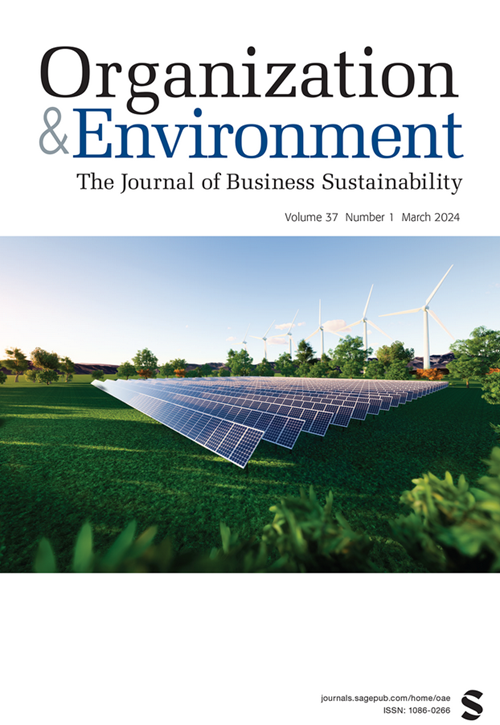Indigenous People Struggle for Damage Repair: Assessing Shadow Networks Resistance and Pursuit of Resilience in the Context of an Industrial Disaster
IF 7.3
4区 管理学
Q1 ENVIRONMENTAL STUDIES
引用次数: 0
Abstract
This study aims to understand the emergence of bottom-up social practices in shadow networks in the context of an industrial disaster. The empirical focus involves the Guarani and Tupinikim indigenous people, victims of the Fundão tailing dam rupture, one of the world’s greatest socio-environmental disasters. We adopted a qualitative approach to identify the indigenous shadow network’s agency, resistance mechanisms, and resilience activation. We interpret indigenous resistance as a way of fighting for their existence, with mechanisms crafted by collective deliberation and community mobilization. We identified the mining industry’s efforts to divide resistance and how the indigenous shadow network rebuilt resistance mechanisms through activating resilience based on indigenous values, interconnected leaderships, and social memory from their ancestral land. We thereby advance in understanding the indigenous shadow network’s agency that allows managers to intervene with on-ground actions to maintain or enhance resistance and resilience in the context of organizational studies.原住民为损害修复而奋斗:评估工业灾难背景下阴影网络的抵抗和复原追求
本研究旨在了解工业灾难背景下影子网络中出现的自下而上的社会实践。实证重点涉及瓜拉尼和图皮尼基姆土著人,他们是世界上最大的社会环境灾难之一--丰当尾矿坝断裂的受害者。我们采用定性方法来确定土著影子网络的机构、抵抗机制和复原力激活。我们将原住民的抵抗解释为一种为生存而战的方式,其机制是通过集体讨论和社区动员精心设计的。我们明确了采矿业分化抵抗的努力,以及土著影子网络如何通过激活基于土著价值观、相互关联的领导力和祖先土地上的社会记忆的复原力来重建抵抗机制。因此,我们在组织研究的背景下,进一步了解了原住民影子网络的能动性,使管理者能够通过实地行动进行干预,以保持或增强抵抗力和复原力。
本文章由计算机程序翻译,如有差异,请以英文原文为准。
求助全文
约1分钟内获得全文
求助全文
来源期刊

Organization & Environment
Multiple-
CiteScore
11.20
自引率
5.70%
发文量
19
期刊介绍:
Organization & Environment encourages informed discussion about the social roots and consequences of environmental problems and stimulates deeper reflection on the meaning and significance of the natural world. By critically examining the impact of human production and consumption systems on the natural environment, Organization & Environment develops new perspectives on organizations that encourage environmentally sensitive reflection, inquiry, and practice.
 求助内容:
求助内容: 应助结果提醒方式:
应助结果提醒方式:


